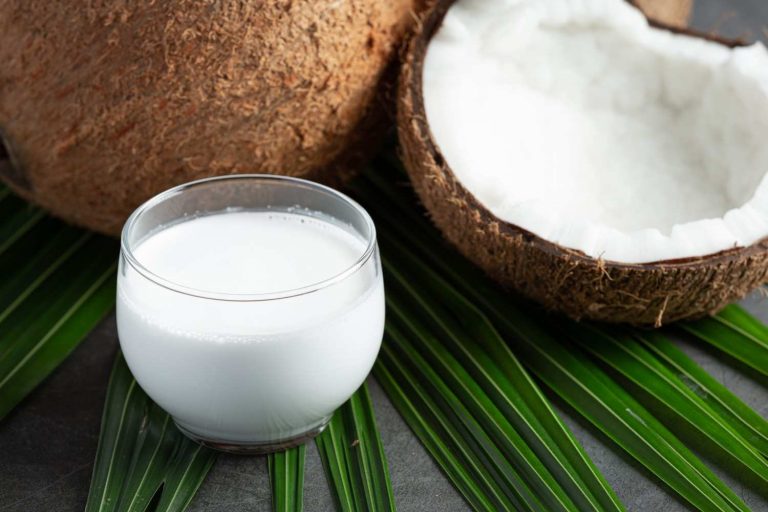A leaky gut diet plan can be your guiding light if you’re feeling lost in a maze of digestive issues and fatigue. This condition, often overlooked, affects countless individuals. It’s time to shed light on how a thoughtful diet can heal your gut and transform your life.
Contents
Understanding Leaky Gut
Let’s get straight to the point. A leaky gut occurs when the lining of your intestines becomes damaged, allowing toxins, bacteria, and undigested food particles to seep into your bloodstream. This can lead to a host of issues—from bloating and food sensitivities to autoimmune disorders. The significance? Your gut health directly impacts your overall well-being. Healing your gut is not just about alleviating symptoms; it’s about reclaiming your vitality and joy.
Why a Leaky Gut Diet Matters
The foods you consume either nourish or harm your gut. A well-planned leaky gut diet can reduce inflammation, balance your microbiome, and restore your gut lining. But where do you start? Here are the seven essentials you need for a successful leaky gut diet plan.
1. Elimination of Trigger Foods
First things first—identify and eliminate foods that may be wreaking havoc on your gut. Common culprits include:
- Gluten: Found in wheat, barley, and rye, gluten can be inflammatory for many.
- Dairy: Lactose intolerance or sensitivity to casein can contribute to gut issues.
- Processed Foods: Packaged snacks often contain additives and preservatives that disrupt gut health.
- Sugar: Excessive sugar feeds harmful bacteria and can lead to dysbiosis.
Start by keeping a food diary. Track what you eat and how you feel. This will help pinpoint your triggers and guide your elimination phase.
2. Incorporate Nutrient-Dense Foods
Healing your gut requires nourishing it. Focus on whole, nutrient-dense foods:
- Fermented Foods: Think sauerkraut, kimchi, kefir, and yogurt. These foods are rich in probiotics that promote healthy gut flora.
- Bone Broth: Packed with collagen and amino acids, bone broth can help repair the gut lining.
- Leafy Greens: Spinach, kale, and Swiss chard are high in fiber and essential nutrients.
- Healthy Fats: Avocados, olive oil, and coconut oil support healthy cell membranes.
These foods not only nourish your gut but also help reduce inflammation.
3. Prioritize Fiber-Rich Foods
Fiber is your gut’s best friend. It feeds beneficial bacteria, enhances digestion, and promotes regularity. Aim for a variety of fiber sources:
- Fruits: Berries, apples, and pears are excellent choices.
- Vegetables: Carrots, broccoli, and sweet potatoes are fiber-rich.
- Legumes: Beans, lentils, and chickpeas are not only nutritious but also versatile.
Gradually increase your fiber intake to avoid any digestive discomfort. Your gut will thank you!
4. Stay Hydrated
Water is essential for gut health. It aids digestion, helps transport nutrients, and flushes out toxins. Aim for at least eight glasses per day. Here are some tips to enhance hydration:
- Infuse Water: Add lemon, cucumber, or mint for a refreshing twist.
- Herbal Teas: Ginger or peppermint tea can soothe your digestive system.
- Electrolyte Balance: Consider adding a pinch of sea salt to your water for essential minerals.
Hydration is a simple yet powerful tool in your healing journey.
5. Supplement Wisely
While whole foods should be your primary source of nutrition, some supplements can support your healing process:
- Probiotics: These beneficial bacteria help restore balance to your gut microbiome. Look for a high-quality, multi-strain probiotic.
- L-Glutamine: This amino acid can help repair the intestinal lining.
- Digestive Enzymes: If you struggle with digestion, these can help break down food more effectively.
Always consult with a healthcare professional before starting any new supplement.
6. Mind Your Stress Levels
Your gut and brain are in constant communication. High-stress levels can exacerbate gut issues. Incorporate stress-reducing practices into your daily routine:
- Mindfulness and Meditation: Take time to breathe and focus on the present moment.
- Gentle Exercise: Activities like yoga or walking can reduce stress and promote digestion.
- Adequate Sleep: Prioritize restorative sleep to support overall health.
Creating a calm environment can significantly enhance your healing process.
7. Listen to Your Body
The most crucial aspect of your leaky gut diet plan is tuning into your body. Everyone’s journey is unique. Here’s how to cultivate that connection:
- Intuitive Eating: Pay attention to how different foods make you feel.
- Regular Check-Ins: Assess your energy levels, mood, and digestive health regularly.
- Seek Professional Guidance: Consider working with a nutritionist who specializes in gut health for personalized advice.
Your body is your best teacher. Trust it.
Putting It All Together
Crafting a leaky gut diet plan isn’t just about following a list; it’s about creating a lifestyle that nourishes and heals. By focusing on whole foods, eliminating triggers, and listening to your body, you can reclaim your health and vitality.
Bottom Line
A leaky gut diet plan is an empowering step toward healing. Remember, it’s a journey, not a sprint. Embrace the process, and give yourself grace along the way.
Feeling inspired? Start today! You have the power to transform your gut health and, in turn, your life.
FAQ
What are the symptoms of a leaky gut?
Common symptoms include bloating, food sensitivities, fatigue, and skin issues.
How long does it take to heal a leaky gut?
Healing can take anywhere from a few weeks to several months, depending on individual circumstances.
Can a leaky gut lead to other health problems?
Yes, a leaky gut can contribute to autoimmune diseases, allergies, and other chronic conditions.
For more information on gut health, check out resources from the National Institute of Health and Cleveland Clinic. Your journey to healing starts with knowledge and empowerment.
Get Your FREE Natural Health Guide!
Subscribe now and receive our exclusive ebook packed with natural health tips, practical wellness advice, and easy lifestyle changes, delivered straight to your inbox.




